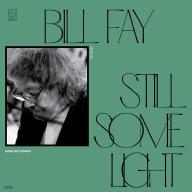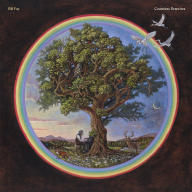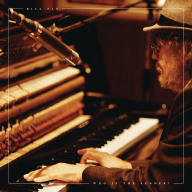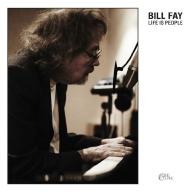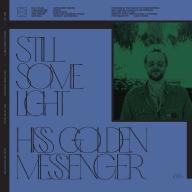Fay was born in North London in 1943, where he continues to live and work. He began writing in the early '60s while studying at university and in 1966 recorded a demo using John Boden's mobile studio. Impressed by the demo, ex-Them drummer Terry Noone helped him get a recording contract with Decca subsidiary Deram in late 1966. He issued the debut single "Some Good Advice"/"Screams in the Ears" in 1967. He followed it with his lushly orchestrated self-titled debut in 1970. While critical notice was favorable, there was precious little airplay, and the label's marketing department had virtually no idea how to place his work. Though Bill Fay sold poorly, the label chose to record a follow-up in hopes of building interest. 1971's Time of the Last Persecution was co-produced by Fay and guitarist Ray Russell, and featured top-notch session players including drummer Alan Rushton, bassist Daryl Runswick, trombonist Nick Evans, and flautist Tony Roberts. Given its gaunt, haunted-looking cover photo of the artist, as well as the deeply pessimistic spiritual subject matter about the world coming to an end, journalists speculated Fay was a hopeless drug addict and/or mentally ill. Some even claimed he was homeless and raving on the streets. None of it was true. Despite their warm affection for the music, the outlandish stories helped keep the LP out of the hands of the record-buying public and off the radio.
Due to poor sales of both albums, Fay was released from his contract and Deram eventually deleted both recordings. They subsequently became cult classics and were reissued in 1998; they were finally greeted with nearly universal acclaim. This cultivated a renewed interest in Fay from artists like Jeff Tweedy and David Tibet; the latter released the songwriter's lost third album, Tomorrow, Tomorrow and Tomorrow (credited to the Bill Fay Group) in 2004. Bill Fay and Time of the Last Persecution were remastered and reissued again in 2007 by Esoteric. In 2010, Tibet released a compilation of early demos, as well as newer home recordings entitled Still Some Light.
Producer Joshua Henry, who had grown up listening to Fay's early albums from his father's record collection, tracked down and finally persuaded the reclusive songwriter to record again. He hired Matt Deighton to assemble a studio band, and also recruited Russell and Rushton to appear on several tracks. The end result, Life Is People, appeared on Dead Oceans in August of 2012.
The near-universal critical acclaim that greeted the album didn't faze its creator. Fay slipped quietly back into the shadows, but was hardly forgotten. The War on Drugs played his song "I Hear You Calling" at shows on their 2014 tour, and A.C. Newman's cover of "Be Not So Fearful" was used in an episode of The Walking Dead television series.
At home, Fay continued to write and demo songs (he claimed to never to have stopped during his missing years). In 2014, he and producer Henry re-teamed with many of the same players from the Life Is People sessions, including Russell and Rushton. They worked at North London's Konk Studios and finished an album in 13 days. A pre-release single, "War Machine," was issued by Dead Oceans in February of 2015, followed by the full-length Who Is the Sender? in April.
In November of 2019, Fay announced through Dead Oceans he was releasing the album Countless Branches in the new year, and prefaced it with the video single for "Filled with Wonder Once Again," directed by Emily Scaife. Once more produced by Henry, the effort proved a more minimal affair, with Fay's voice and piano way up front and center, and sometimes solo. Deighton hired a small studio band and Russell played acoustic guitar on a couple of tracks. After issuing two more pre-release video singles, "Love Will Remain" and "Salt of the Earth," Countless Branches appeared in January of 2020. ~ Richie Unterberger, Rovi


